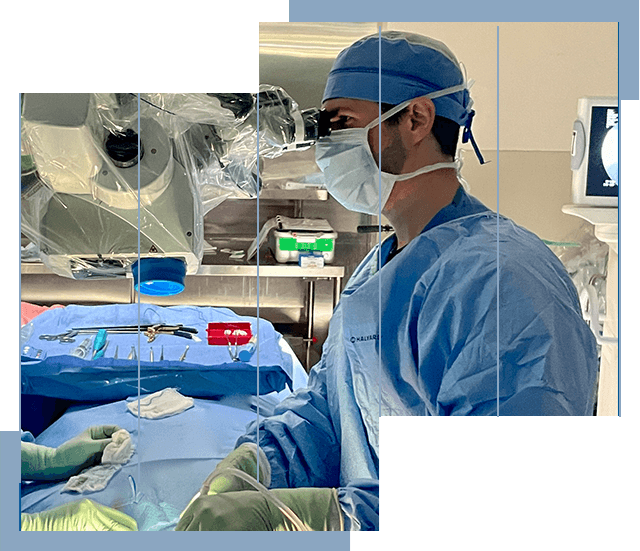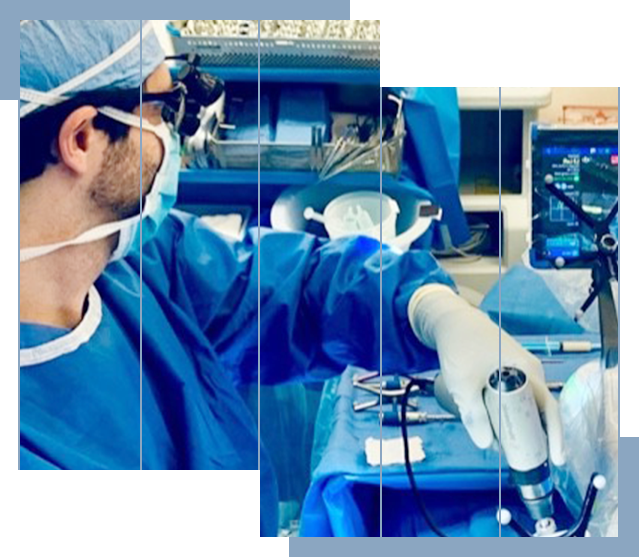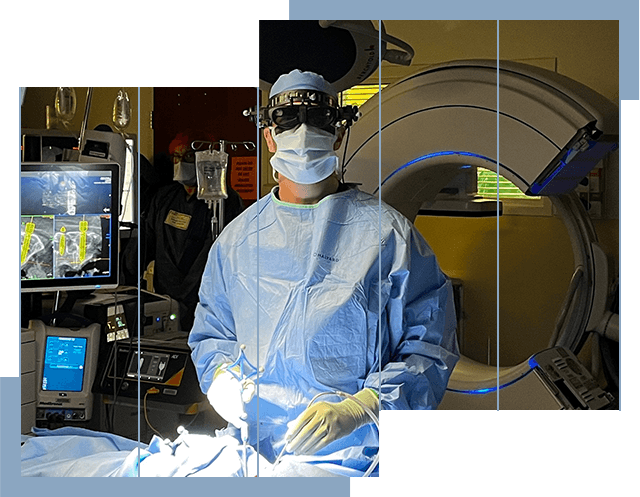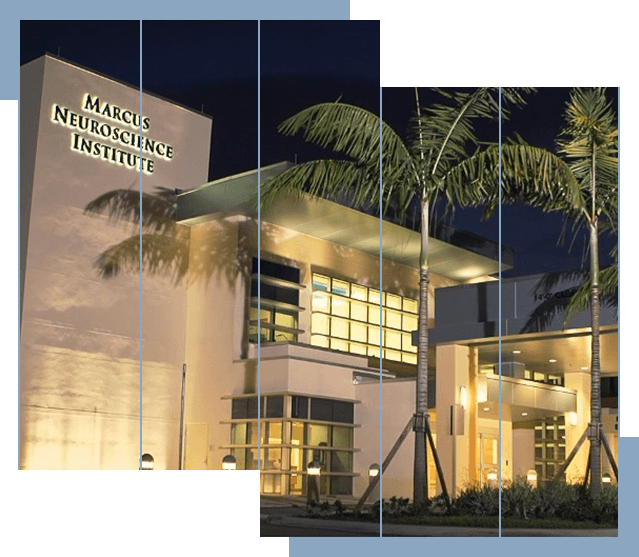
Timothy O'Connor, MD Neurosurgeon Director of Minimally Invasive and Robotic Spine Surgery
Timothy O’Connor, MD is a board certified, fellowship-trained Neurological Surgeon and serves as the Director of Minimally Invasive and Robotic Spine Surgery at the Marcus Neuroscience Institute. He sees patients at Baptist Health Boca Raton Regional Hospital and Bethesda Hospitals East & West. His main clinical interests include robotic surgery, minimally invasive spine surgery, brain tumors, and gamma knife radiosurgery.
Minimally Invasive
Spine Surgery
Dr. O'Connor uses the latest technology including computer navigation and advanced microscopic techniques to perform surgeries through a smaller incision to allow faster recovery
Advantages of Minimally Invasive Spine Surgery
Minimally invasive surgery is aimed at minimizing damage to the muscles and surrounding structures. It possesses numerous benefits over the traditional spine surgery which include:
- Small surgery scars
- Reduced risk of infections
- Less blood loss during the surgery
- Less postoperative pain
- Quicker recovery
- Shorter hospital stay
- Quicker return to work and normal activities


Robotic Spine Surgery
Robotic technology has evolved over several generations to advance minimally invasive techniques and integrate computer guidance in the operating room. Although traditional techniques for spine surgery are still widespread, newer robotic technology has increased the reliability of accurately performing surgery with smaller incisions, faster recovery, and decreased length of hospital stays.
Dr. O’Connor has helped contribute to the development of robotic spine technology and provides training to surgeons on integrating robotic surgical systems within the operating room. He now uses the technology to improve multiple aspects of spine surgery to benefit to his patients.
Advantages of Robotic Spine Surgery
- Detailed preoperative planning
- Reduced risk of complications
- Accurate placement of instruments & implants
- Reduced X-ray exposure
Augmented Realty
Spine Surgery
Augmented Realty can now be merged with computer navigation to allow real time stereoscopic guidance during complex surgeries. Dr. O'Connor has helped develop this technology, and has been invited to present his work at national conferences including the Congress of Neurologic Surgeons.


Artificial Intelligence
Software Planning
Benefits of AI in Spine Surgery
Artificial Intelligence (AI) has revolutionized spine surgery by providing tools that enhance surgical precision and patient outcomes. AI algorithms can now process complex imaging data such as MRIs and CT scans to augment medical decision making. Dr. O'Connor uses data analytics within AI software to create highly personalized treatment plans for each patient that may undergo surgery.
Ultrasonic Bone Removal
Benefits of Ultrasonic Bone Removal in Spine Surgery
Ultrasonic bone removal technology represents a significant advancement in surgical techniques, particularly in spine surgery. Here are some key benefits:


Brain Tumors
Dr. O'Connor treats primary brain tumors, metastatic brain tumors, and extra-axial brain tumors such as meningiomas using computer guidance and microsurgical techniques. He works closely with the Radiation Oncology team to perform Gamma Knife radiosurgery for patients throughout the region.
Publications & Presentations
Lateral Temporal Approach for Image-Guided Stereotactic Biopsy of Pineal Region Tumors.
Biopsy of pineal region neoplasms is frequently accomplished by way of endoscopic transventricular access or using an image-guided, computer-assisted stereotactic approach.












